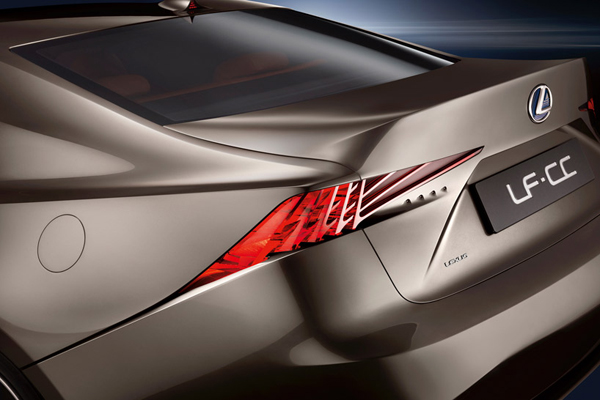The Lexus LF-CC Hybrid
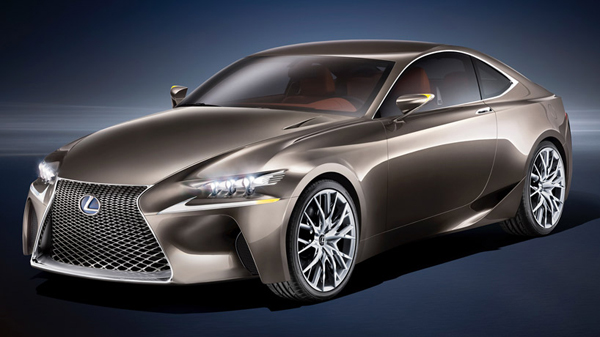
The Lexus LF-CC Hybrid
Clearly, Lexus is making headway towards the future, if you are to look at the concept car unveiled by Japan’s Toyota Motor Corporation, the makers of Lexus. It is called the Lexus LF-CC hybrid, and its striking lines and curves have been brought to the spotlight in the 2012 Paris Auto Show. Attractive, high-performance, user-friendly (or, should we say, driver-friendly?), and eco-friendly, this is one set of wheels that cuts no corners.
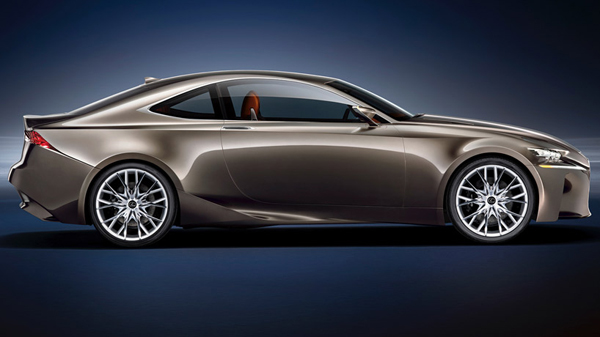
Curves and Lines
First, let us take a look at the design. This is a mid-size coupe with a refined front and a curvaceous bodywork. Its LED projector headlights and taillights only serve to set off the sleek design.
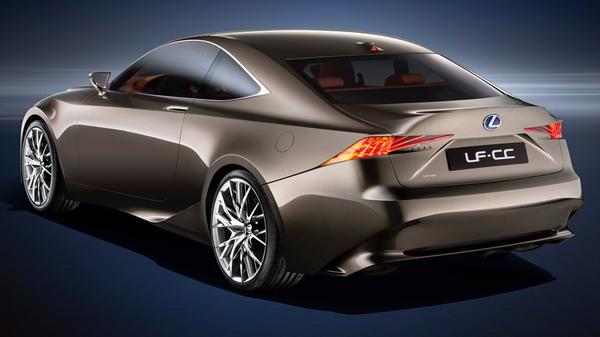
This rear-wheel drive concept car features LED taillights.
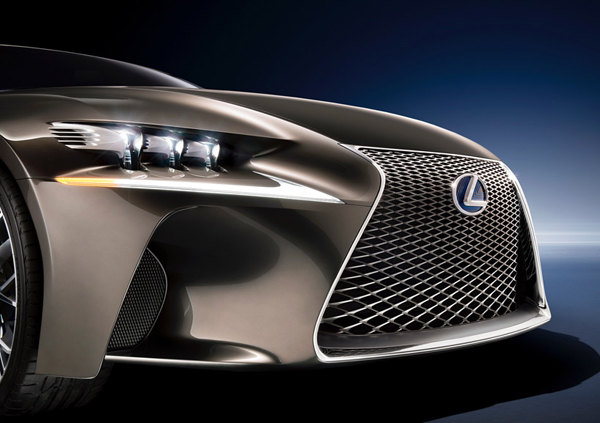
The front.
This concept car also indicates a clear direction that the makers are planning to go to when it comes to touchscreen interiors. All the information the driver needs to have will be presented to him via an array of large, bright displays on the digital dashboard. This is further reinforced by the multi-function unit in the middle of the Lexus LF-CC, along with a touch-sensitive panel between the seats. None of the usual button-riddled consoles that we are used to. Even the armrest comes with a touch display that is the size of your usual smartphone. Navigation becomes easier, and handling the levers and controls are no sweat at all.

The digital dashboard with the touch-sensitive panels.
Now let’s talk about the performance and efficiency. This concept car has masterfully combined Lexus’ 2.5 liter four-cylinder powertrain with Toyota’s parallel hybrid system. That means you get power and efficiency simultaneously. The Lexus LF-CC boasts a water-cooled permanent magnet electric motor and has low carbon emissions, making it energy-efficient and environment-friendly.
So, how do you rate this concept car? Would it be too presumptuous to assume that, sometime in the future, we would now have a car with no steering wheel, only a digital touchscreen display to steer it with?

